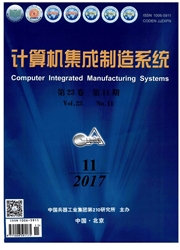

 中文摘要:
中文摘要:
为了优化两阶段电子商务供应链,避免由于信息不对称导致的供应链效率低下,研究了一类在生命周期中采用C2B-B2C两阶段模式进行销售的电子商务供应链模型,分别对第一阶段消费者根据零售商退货补偿价格制定的退货决策、第一阶段消费者退货决策对第二阶段零售商的最优订货量与最优利润的影响进行了分析,发现C2B-B2C电子商务供应链两阶段具有不同的零售商的最优退货价格。对零售商最优退货价格的分析发现,制造商能够通过回购和对退货进行再制造来调节零售商最优退货价格,实现两阶段的协调。在此基础上对不同类型的制造商回购合同进行分析,结果表明,差异化回购合同能够更有效地协调两阶段供应链;另外,在产品非易逝且消费者愿意接受再制造产品的前提下,制造商提供再制造的差异化回购合同能够更好地增进供应链的整体利润。
 英文摘要:
英文摘要:
To optimize the supply chain of two-stage e-commerce, a kind of e-commerce supply chain model that a- dopted two-stage sales model of B2C and C2B in the lifecycle was developed. The return policy drew by customers with retailer's returns compensation in first stage and the effect of customer's return policy in first-stage reaction on optimal order quantity and optimal profit of retailers in second stage were analyzed respectively. The analysis result showed the different optimal return prices were existed in two-stage sales model of B2C and C2B. Retailers' optional return price could be changed by supplier repurchases and return remanufacturing to achieve two-stage coordination. On this basis, different types of supplier repurchases contracts were analyzed, and the results showed that two-stage supply chain could be effectively coordinated with differential repurchases contracts. In addition, the supply chain's overall profit could be increased effectively by differential repurchases contracts in supplier remanufacturing on the promise of the non-perishable products and remanufactured goods be accepted by customers. :
 同期刊论文项目
同期刊论文项目
 同项目期刊论文
同项目期刊论文
 期刊信息
期刊信息
